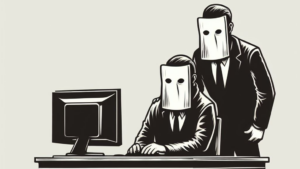During my career, I’ve witnessed the transformation of support teams from centralised office spaces to remote work environments. This shift has brought about new challenges and opportunities, with critical thinking emerging as a crucial skill for remote support teams. In this blog post, I’ll discuss the benefits of critical thinking in remote support teams, share some strategies for implementing and nurturing this skill in your team, and provide practical examples to illustrate the impact of critical thinking in remote support teams.
The Benefits of Critical Thinking in Remote Support Teams
- Improved decision-making: Critical thinking allows team members to analyze information, evaluate arguments, and weigh different views and solutions. This leads to better-informed decisions that ultimately benefit the team and the customers they support. For example, when a remote support team member receives a request from a customer experiencing an issue, the team member must analyse the customer’s description of the problem, evaluate the potential solutions, and weigh the pros and cons of each option. By employing critical thinking, they can decide on the best action to resolve the issue, ultimately leading to a satisfied customer.
- Enhanced problem-solving: Critical thinkers can generate unique ideas and nonlinear solutions, enabling them to think outside the box and tackle complex problems effectively. In a remote support team, a team member encounters a customer issue that requires a creative solution. By thinking critically, the team member can generate a unique solution that addresses the customer’s problem while improving the overall user experience. This not only resolves the immediate issue but also contributes to your service’s ongoing development and improvement.
- Increased autonomy and sound judgment: Critical thinking empowers team members to act independently and make well-reasoned decisions, even without clear guidance. This leads to a more autonomous and adaptable team. In a remote support team, a team member faces a complex customer issue that requires immediate attention. By employing critical thinking, the team member can assess the situation, identify the most appropriate course of action, and implement the solution without waiting for approval from a supervisor. This resolves the customer’s issue promptly and demonstrates team members’ ability to act autonomously and exercise sound judgment in challenging situations.
How to Implement Critical Thinking in Remote Support Teams
- Create a team culture that supports critical thinking: Encourage open communication and collaboration, fostering an environment of trust and inclusiveness. This will help team members feel comfortable sharing their thoughts and ideas, even if they challenge the status quo. For example, a remote support team leader hosts regular meetings where team members are encouraged to discuss customer issues, share their thoughts on potential solutions, and provide feedback on each other’s work. The team leader fosters an environment where critical thinking can flourish by creating a culture of open communication and collaboration.
- Provide training and resources: Offer workshops and seminars on critical thinking skills and share tools and techniques for effective problem-solving. This will equip your team with the skills and knowledge they need to think critically in their day-to-day work. A remote support team leader organizes a workshop on critical thinking skills, where team members learn various techniques for analyzing information, evaluating arguments, and generating creative solutions. By providing this training, the team leader ensures that team members have the necessary critical thinking skills.
- Monitor and adjust: Use pulse surveys and regular check-ins to assess the progress of your team’s critical thinking skills. Provide feedback and guidance as needed, helping team members refine their critical thinking abilities. A remote support team leader conducts regular one-on-one meetings with team members to discuss their work, assess their critical thinking skills, and provide feedback and guidance. By monitoring the team’s progress and adjusting the training and resources provided, the team leader ensures that the team continues to develop and improve its critical thinking abilities.
Overcoming Challenges in Remote Support Teams
- Communication barriers: Establish clear and frequent communication channels to ensure team members can easily share their thoughts and ideas. Use multimedia and interactive tools to engage team members and facilitate productive discussions. For example, a remote support team leader implements a communication platform that allows team members to chat, share files, and collaborate on projects in real time. By establishing clear and frequent communication channels, the team leader ensures that team members can easily share their thoughts and ideas, fostering a culture of critical thinking.
- Time management and goal-setting: Define goals and expectations for individuals and teams, helping them prioritise their work and manage their time effectively. Encourage time management and prioritization skills, ensuring team members have the tools and resources to succeed in a remote work environment. A remote support team leader sets clear expectations for team members, including deadlines for resolving customer issues and guidelines for managing their workload. By defining goals and expectations, the team leader helps team members prioritise their work and manage their time effectively, enabling them to focus on critical thinking and problem-solving in their day-to-day tasks.
Conclusion
Fostering a culture of critical thinking in remote support teams is essential for overcoming their unique challenges. Technical support leaders can create more effective, adaptable, and autonomous teams by implementing strategies to develop and nurture critical thinking skills.
The result? Happier team members and more satisfied customers.







